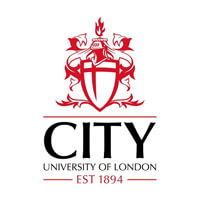fees waived
Data Science, MSci (Hons)
City, University of London, United Kingdom
Subject ranking
UK / THE 2025 30th
UK / CUG 2024 37th
UK / Guardian 2025 38th
Costs
food & rentS$25.1K / year
Entry requirements
Scholarships
Limited quantity
Information
Code
Intakes
Website (External)
Programmes
Information
Duration
2029
Data science is a highly sought-after discipline across sectors such as energy, transport, and creative industries. This degree equips students with essential computing and data analysis skills, including algorithmic thinking, programming, and techniques for extracting actionable insights from data. Combined with creative problem-solving, these competencies enable graduates to address complex challenges and drive innovation, enhancing employability in fields like retail, health, and technology.The program builds a strong foundation in computer science before advancing to data science topics, such as AI, machine learning, and big data. Students engage in modules covering programming languages, data structures, and professional projects, with assessments primarily involving examinations and coursework that emphasize practical application. Accredited by BCS, the degree meets requirements for professional registration as a Chartered IT Professional or Engineer.
On the Data Science MSci you will begin your studies by developing a firm foundation in computer science, before broadening your study to encompass data science theory, methods and techniques. Year 1 Study our common first year for all our computer science students, learning six core topics including operating systems, web development and Java. -Computation and Reasoning (15 Credits) -Mathematics for Computing (15 Credits) -Systems Architecture (15 Credits) -Programming in Java (30 Credits) -Databases (15 Credits) -Operating Systems (15 Credits) -Computer Science, Ethics & Society (15 credits) Year 2 Deepen your knowledge of computer science with core modules such as C++ and data structures. Boost your professional skills with a team project and a work-based project. -Data Structures and Algorithms (15 Credits) -Language Processors (15 Credits) -Object-Oriented Analysis and Design (15 Credits) -Professional Development in IT (15 Credits) -Team Project (30 Credits) -Programming in C++ (15 Credits) -Computer Networks (15 Credits) Year 3 Build your data science skill set with five core modules and three elective modules, including principles of data science, and AI. -Computer Vision (15 Credits) -Principles of Data Science (15 Credits) -Introduction to AI (15 Credits) -Programming and Mathematics for AI (15 Credits) -Agents and Multi Agents Systems (15 Credits) -Games Technology (15 Credits) -Advanced Databases (15 Credits) -Theory of Computation (15 Credits) -Advanced Games Technology (15 Credits) -Professional Experience (Placement) Placement Reports (30 Credits) -Data Visualization (15 Credits) -Digital Signal Processing and Audio Programming (15 Credits) -Advanced Programming: Concurrency (15 Credits) -Functional Programming (15 Credits) -Cloud Computing (15 Credits) -Information Security Fundamentals (15 Credits) -User Centred Systems (15 Credits) -Semantic Web Technologies and Knowledge Graphs (15 credits) -Project Management (15 credits) Year 4 Develop professional data science expertise with five core modules, including big data and visual analytics. Showcase your knowledge with a data-intensive individual research project. -Neural Computing (15 Credits) -Machine Learning (15 Credits) -Big Data (15 Credits) -Visual Analytics (15 Credits) -Information Retrieval (15 Credits) -Individual Project (45 Credits) -Software Systems Design (15 Credits) -User-Centred System Design (15 Credits) -Digital Signal Processing and Audio Programming (15 Credits) -Advanced Programming: Concurrency (15 Credits) -Advanced Algorithms and Data Structures (15 Credits) -Cloud Computing (15 Credits) -Computational Cognitive Systems (15 Credits) -Advanced Games Technology (15 Credits) -Semantic Web Technologies and Knowledge Graphs (15 credits) -Project Management (15 credits) The one year placement can be undertaken following successful completion of year 3 and will be required to last for a minimum of 9 months.

